Born in Karachi (then part of India) of English parentage in 1932, Jennifer Blocksidge experienced her first stage role as a child at school in Kashmir. Her father was Manager of Shell for India.
Towards the end of World War II the family returned to England where she attended Queen Anne’s School at Caversham and in her final year was Head Girl. Encouraged by her head mistress, she developed a strong interest in theatre and both acted in and directed school plays. Such was her talent in these areas that she went on to tertiary study, qualifying as a Drama teacher from the Central School of Speech and Drama in London. Perhaps she was also inspired in her artistic pursuits by her uncle, the famous English tenor Sir Peter Pears. Soon after, and in a spirit of adventure, she applied for and won a position in Armidale, Australia at the New England Girls School (NEGS). She loved her job at NEGS and stayed there until 1956. The headmistress, probably impressed by her training, elegant demeanour and strong personality, gave her free rein “and she had a ‘ball’ producing such plays as Pygmalion and The Rivals.[i] During her time at NEGS she visited Brisbane where she met her husband-to-be Bruce Blocksidge, delegated to entertain her during her city stay.
They both went to London, Bruce to study and work (for Mayfair Estate Agents), and Jennifer to work in the Make-Up Department at the B.B.C. They married in England, returned to Brisbane in 1959 and proceeded to produce a family of one boy and two girls. Jennifer became a Brisbane Repertory Theatre member in 1962 and in September of that year performed her first role in Peter Ustinov’s Romanoff and Juliet directed by Babette Stephens. The following year she had the lead role in Agatha Christie’s The Unexpected Guest directed by Gloria Birdwood-Smith. In 1967 she directed David Turner’s Semi-Detached, the last production to go into Albert Hall, and over the next twenty years directed fifteen more productions for La Boite.
As its Theatre Director between 1969 and 1975 and Council President between 1976 and 1978, Jennifer was profoundly influential in shaping La Boite’s destiny during this crucial period in the theatre’s history. Significant outcomes of her leadership were the opening of La Boite Theatre, Australia’s first purpose-built 200 seat theatre-in-the-round; a dramatic change in repertoire leading to a national profile and reputation as an ‘alternative’ theatre company; the establishment of the ground-breaking Early Childhood Drama Project; and the accomplishment of La Boite’s first major status change, the historic transition from an amateur group to a pro-am community theatre.
It was after her involvement with La Boite ended that her professional acting career blossomed. Between 1981 and 1992 she was much in demand as an actor with TN! Theatre Company and the Queensland Theatre Company. For TN! she won critical acclaim for her performances in Brecht’s Mother Courage and her Children, Hamlet , Romeo and Juliet (all directed by Bryan Nason), Caryl Churchill’s Cloud Nine directed by Rod Wissler, and Edward Bond’s Summer directed by Robert Arthur. Among the many leading roles she performed for QTC she was extraordinary as Melanie Klein in Nicholas Wright’s Mrs Klein directed by Sue Rider.
Jennifer also served on the Australia Council’s Community Arts Board between 1981 and 1985 and the Queensland Theatre Company’s Board for several years in the early 1990s. A renowned teacher of voice, she established the voice training program for actors at the Brisbane College of Advanced Education (later QUT) and taught it part-time for fifteen years.
A tall and imposing woman, Jennifer Blocksidge carried herself with such an air of confidence that she could have a daunting effect on those who encountered her. She herself put it down to “the British Raj background and the terribly proper finishing school” but claimed that “a lot of it is bluff”.[ii] She died of cancer on November 11, 1995 at the age of 63. In a Courier-Mail article headlined “Theatre Fans Remember Great Pioneer”, arts reporter Lisa Yallamas wrote of this “theatrical giant” that “the eternal quest of this passionate idealist to ‘walk right on this earth’ inspired others to achieve their best”.[iii] She was remembered by many in the industry, wrote Yallamas, as “a nurturing mentor, cherished second mother, good mate, valued teacher and respected colleague … a gifted performer with a reputation for touching audiences”.
Writer: Christine Comans
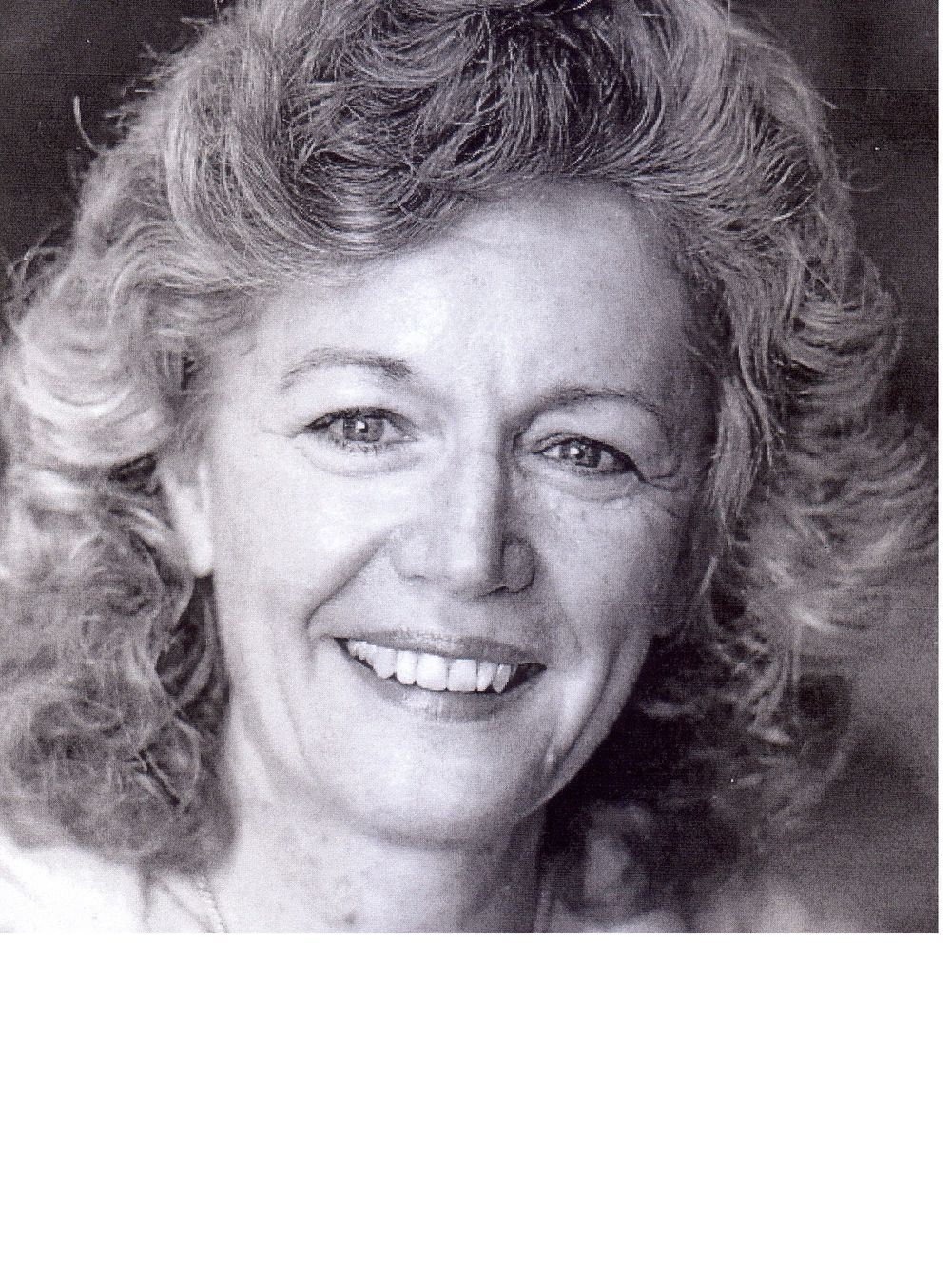
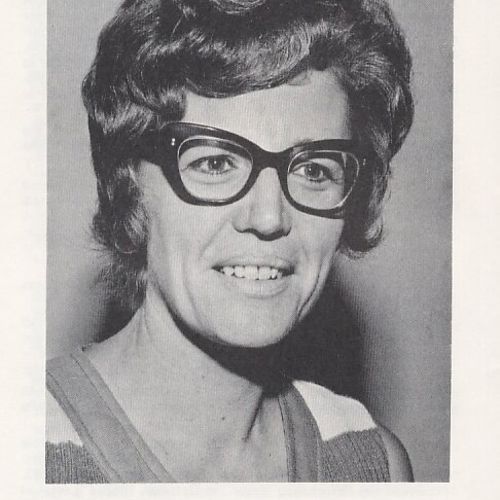
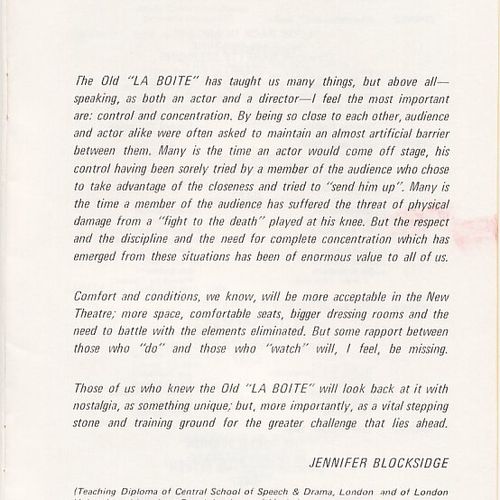
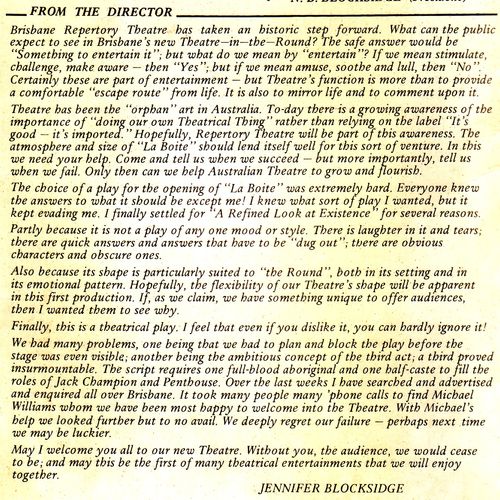
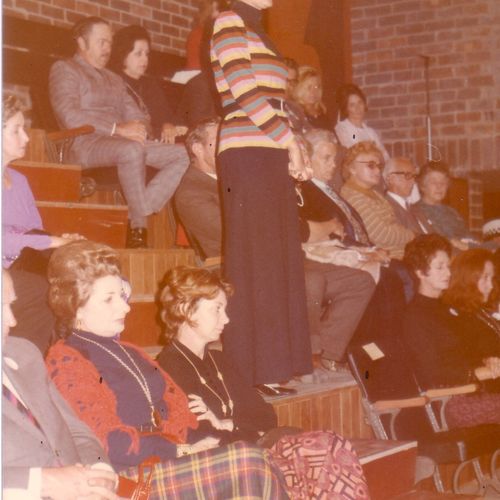
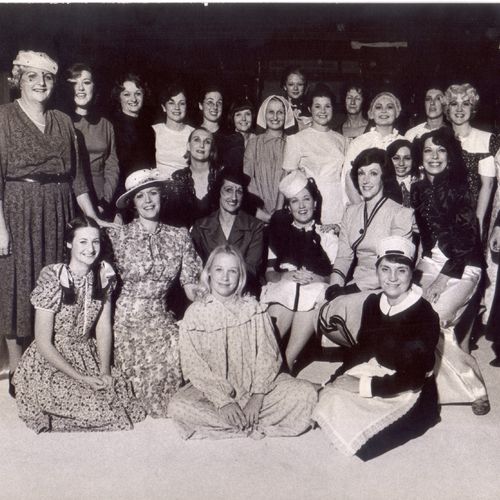
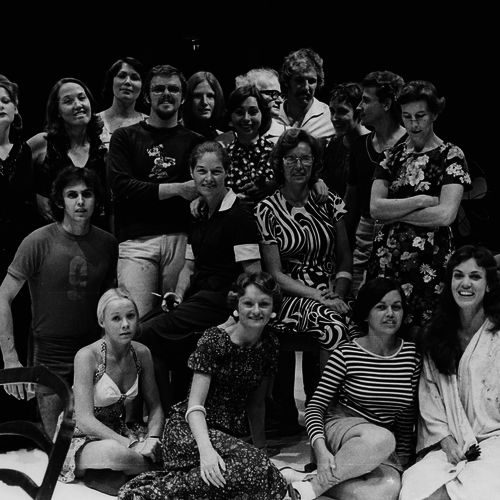
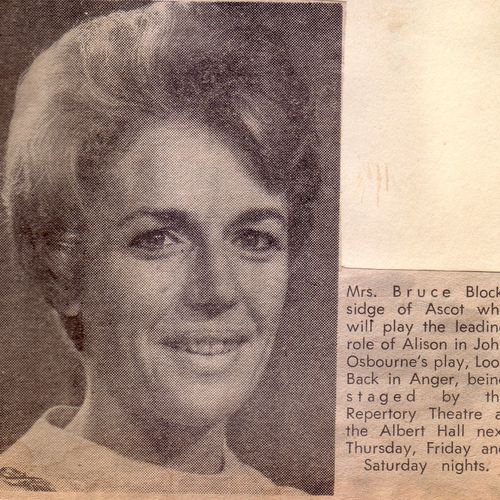
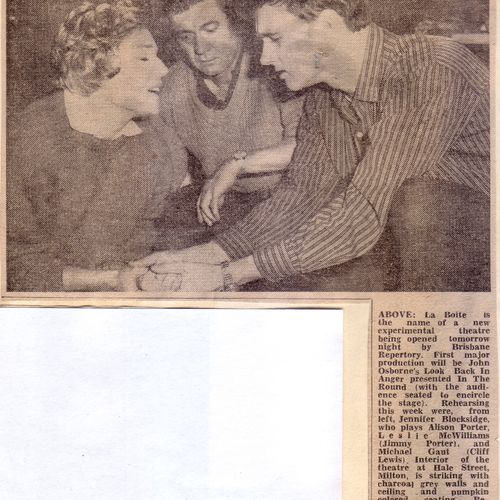
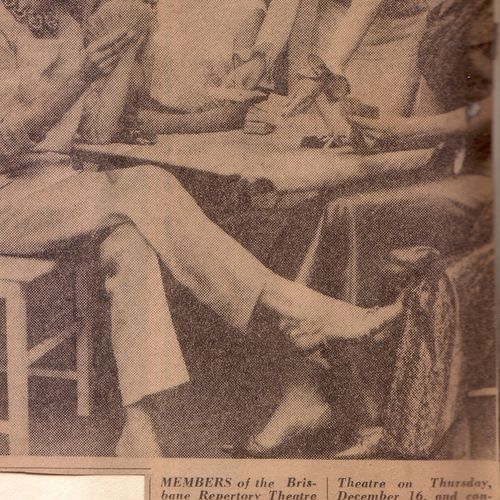
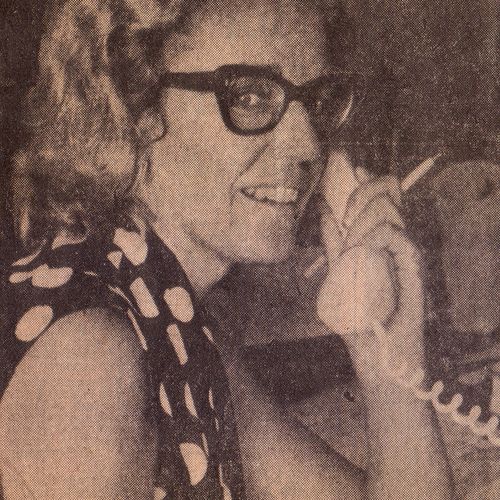
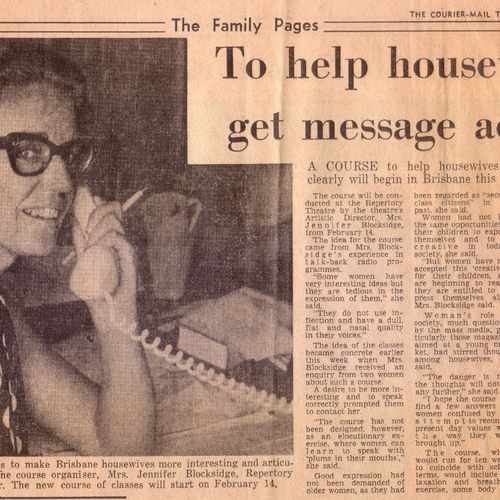
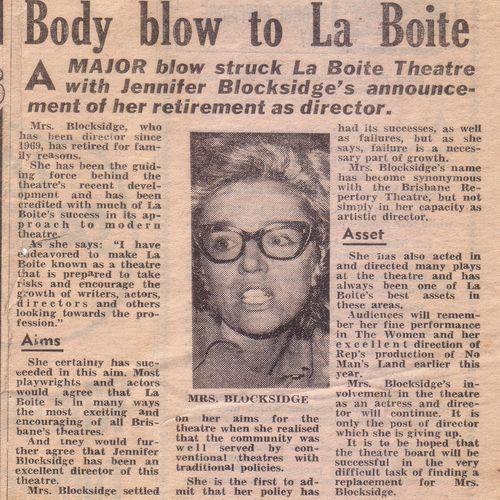
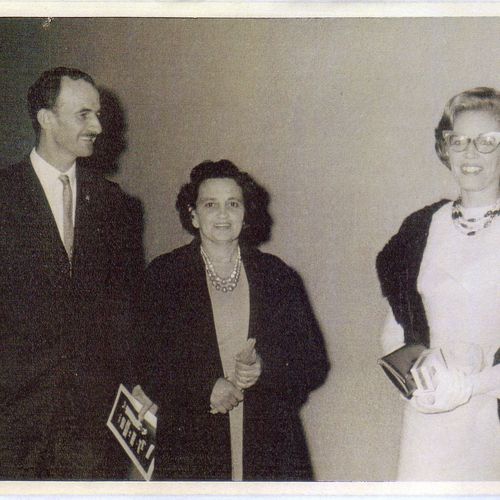
Tell us your story